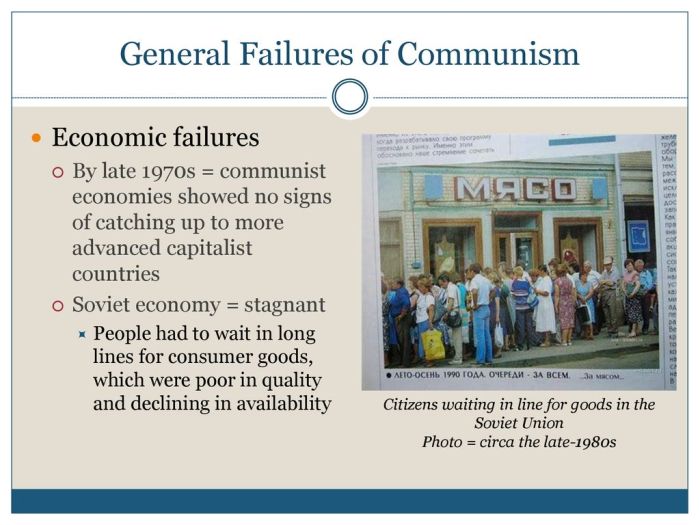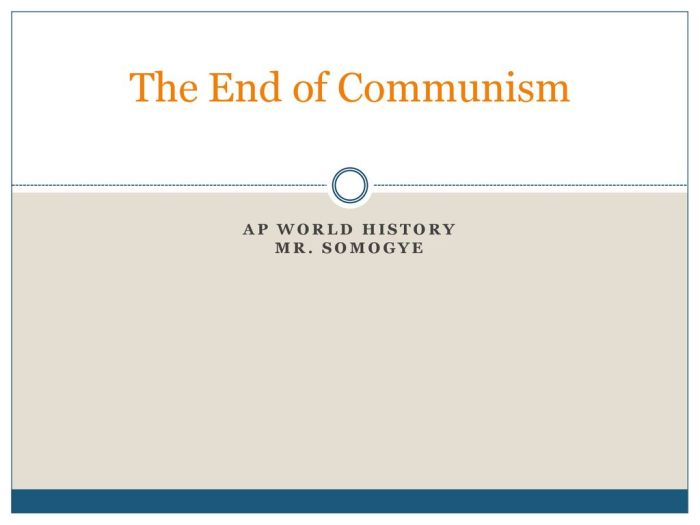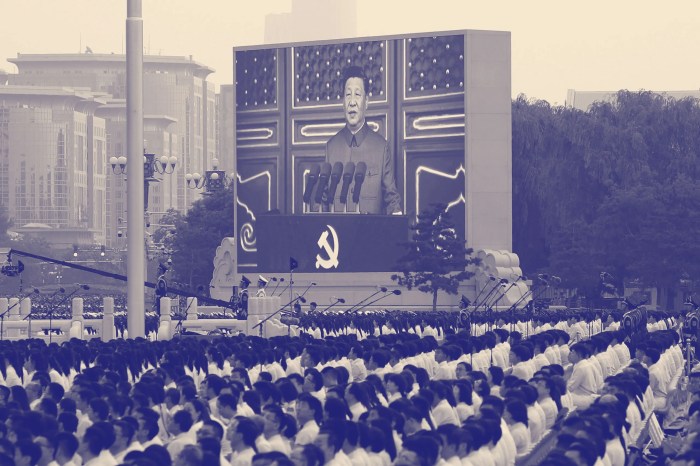The rise of communism ap world history has left an indelible mark on the course of human events. This complex and multifaceted phenomenon, shaped by historical, ideological, and geopolitical forces, has played a pivotal role in shaping the 20th and 21st centuries.
From its origins in the writings of Karl Marx and Friedrich Engels to its transformative impact on global politics, communism has been a subject of intense debate and analysis. This essay delves into the historical context, ideological foundations, and global spread of communism, examining its impact on revolutions, international relations, and the ongoing challenges facing communist governments and movements in the 21st century.
Historical Context: Rise Of Communism Ap World History

The rise of communism in the world can be attributed to a complex interplay of historical events and factors. The aftermath of World War I and the Russian Revolution of 1917 created a fertile ground for the spread of communist ideologies.
Economic and social conditions, such as widespread poverty, inequality, and political oppression, further fueled the appeal of communism among the masses.
Key Figures and Ideologies, Rise of communism ap world history
- Karl Marx:Developed the foundational theories of communism, emphasizing class struggle and the inevitability of a socialist revolution.
- Vladimir Lenin:Led the Bolshevik Revolution in Russia and established the world’s first communist state.
- Joseph Stalin:Consolidated Soviet power and implemented a repressive regime based on Marxist-Leninist principles.
- Mao Zedong:Led the Chinese Communist Revolution and developed a distinct form of communism known as Maoism.
Ideological Foundations
Communism is based on a set of core principles and beliefs that envision a classless, egalitarian society. Its economic theory advocates for the collective ownership of the means of production and the abolition of private property. Politically, communism calls for a centralized government led by a vanguard party that represents the interests of the working class.
Variations of Communism
- Marxism-Leninism:The orthodox form of communism developed by Lenin, emphasizing the importance of a vanguard party and the dictatorship of the proletariat.
- Maoism:A variant of communism developed by Mao Zedong, emphasizing the role of peasants in revolution and the need for continuous struggle against revisionism.
- Trotskyism:A left-wing critique of Stalinism, advocating for a more democratic and internationalist approach to communism.
Revolutions and the Spread of Communism
Communist revolutions have played a pivotal role in the spread of communism worldwide. The Russian Revolution of 1917 marked the first successful communist revolution, establishing the Soviet Union as the first communist state.
Major Communist Revolutions
- Russian Revolution (1917):Led by the Bolsheviks under Lenin, it overthrew the Tsarist regime and established the Soviet Union.
- Chinese Revolution (1949):Led by the Chinese Communist Party under Mao Zedong, it defeated the Nationalist Party and established the People’s Republic of China.
- Cuban Revolution (1959):Led by Fidel Castro, it overthrew the US-backed Batista dictatorship and established a communist state in Cuba.
Cold War and Global Conflict

The Cold War was a period of intense rivalry between the United States and the Soviet Union, with communism as a central ideological dividing line. Both superpowers sought to expand their spheres of influence and contain the spread of opposing ideologies.
Strategies of Containment and Expansion
- Containment:The US policy of preventing the spread of communism through economic and military alliances, such as NATO and the Marshall Plan.
- Expansion:The Soviet Union’s strategy of supporting communist movements and establishing satellite states in Eastern Europe and elsewhere.
Communism in the 21st Century

The collapse of the Soviet Union in 1991 marked a significant turning point in the history of communism. However, communist governments and movements continue to exist in various parts of the world.
Current State and Challenges
- China:The People’s Republic of China remains a communist state, although it has adopted market-oriented reforms.
- Cuba:Cuba is the last remaining communist state in the Americas, facing economic and political challenges.
- North Korea:The Democratic People’s Republic of Korea is a highly isolated and repressive communist state.
Answers to Common Questions
What are the key factors that contributed to the rise of communism?
Economic inequality, social unrest, and political instability created fertile ground for the spread of communist ideas.
What are the core principles of communism?
Communism advocates for a classless society, collective ownership of property, and the abolition of private property.
What are the major communist revolutions in history?
The Russian Revolution, the Chinese Revolution, and the Cuban Revolution are notable examples of communist revolutions.
What was the role of communism in the Cold War?
Communism became a defining ideological divide between the United States and the Soviet Union, leading to a global conflict known as the Cold War.
What is the current state of communism in the world?
While communism has declined in many parts of the world, it remains a significant force in countries such as China, Cuba, and North Korea.